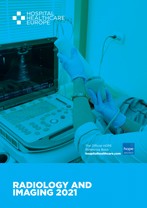With little known about radiologists’ views on the implementation of artificial intelligence (AI) and how this might impact on practice, an international survey sought answers on this important topic.
A 2019 international survey of radiologists revealed a limited knowledge of artificial intelligence (AI) and a genuine fear that the technology would lead to their replacement in the coming years. This fear was in part, found to be driven by a lack of understanding of the role of AI with the result that few expressed a proactive attitude towards the technology. Having identified several factors, a team from the Department of Radiology, University Medical Center, Utrecht, The Netherlands, decided to expand upon their earlier findings and further explore the expectations among radiologists regarding the potential implementation of AI systems, possible barriers to adoption and the perceived need for AI education during their residency training.
The team created a web-based survey that included 39 questions which sought to determine demographics, awareness and existing knowledge of AI, respondents’ expectations of the technology and any hurdles to implementation. The survey was piloted with ten radiologists and then translated into English, French, German, Spanish, Italian, Dutch, Czech, Russian and Turkish and distributed electronically through the Italian, French and Dutch radiology societies, as well as the European Society of Medical Imaging Informatics and via social media.
Findings
A total of 1086 respondents from 54 countries, with a median age of 38 years (65% male) completed the survey. Most of the respondents (83%) were based in Europe although a small number came from Africa (1%), Asia (7%) and North America (6%). Among the respondents, the majority (66%) were radiologists and the remainder either fellows or residents. When asked whether AI would improve diagnostic radiology, the majority (89%) said maybe with only 10% believing that it would. Most respondents (89%) agreed that AI would help to improve diagnostic radiology and the majority (85%) also felt that AI would alter the future of radiologists. With respect to the expected role and benefits of AI in diagnostic radiology, the most frequently cited roles were as a second reader (78%) and workflow optimisation (77%). Interestingly, 47% reported that AI would serve as a partial replacement for radiologists with only 1% think that it would represent a complete replacement.
The potential hurdles to implementation cited included ethical and legal issues (62%), lack of knowledge among relevant stakeholders (56%) and limitations due to digital infrastructure (35%). Additionally, both the high cost of AI software development and the cost of the software itself, were seen as barriers to implementation by 35% and 38% of respondents respectively. Most respondents (79%) also felt that AI education should be incorporated into residency training programmes and this was more likely among older radiologists, although only a minority (23%) thought that imaging informatics and AI should become a radiology subspeciality. In addition, three-quarters (75%) of respondents stated that they were planning on learning about AI.
In discussing these findings, the authors noted how the many (82%) respondents expected that AI would cause a significant change to the profession within ten years but on a positive note, most felt that AI systems could serve as a second reader and assist with workflow optimisation within departments. They concluded that the data suggested how there was broad support across the radiologist community for the incorporation of AI into residency programmes while, at the same time, recognising that legal/ethical issues together with digital infrastructure constraints were an overlooked challenge.
Citation
Huisman M et al. An international survey on AI in radiology in 1041 radiologists and radiology residents’ part 2: expectations, hurdles to implementation, and education. Eur Radiol 2021. https://doi.org/10.1007/s00330-021-07782-4





